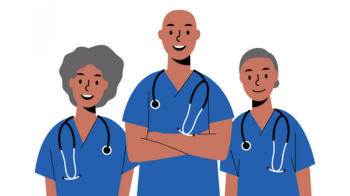This page gives you information and advice for when you go home. You will have had the opportunity to ask questions whilst in hospital, but we wish to support you once you are home. This leaflet should address any concerns you have.
You must never feel isolated; do not hesitate to contact your Movement Disorder Nurse Specialist to discuss any issues.
What can I expect when I first go home?
You may continue to feel tired for 6 weeks while your body is recovering from your recent surgery. It is important to keep relatively active and work towards getting back to your normal routine. But you should continue to rest from time to time.
You should not drive for 6 weeks.
It is important to stay hydrated and have regular bowel and bladder movements (going to the toilet).
You should continue with your pre-operative medications regime until your stimulator activation visit (unless we tell you otherwise).
It is important to do your neck exercises several times a day, for about 6 weeks after surgery. This will stop the leads running down your neck from becoming too tight. Rotate your neck from side-to-side, forwards and backwards, and move your ear to each shoulder.
Some people may have temporary symptoms because of mild swelling in the brain. These can include:
- Blurred vision.
- Slurred speech.
- Falls or loss of balance which is not normal for you.
- Increased involuntary movements (dyskinesia).
Please contact the Movement Disorder Nurse Specialists at Southmead or your GP out of hours if these symptoms are a worrying you, or if you feel unwell.
Your Movement Disorder Specialist will have advised you on how to care for your wounds before being discharged from hospital. You will be given a letter for your Practice Nurse advising when your stitches and steri-strips should be removed. You will also have a wound audit questionnaire to complete and bring back with you to your activation visit.
Keep your wounds dry and regularly check for signs of infection. Signs of wound infection can include, but are not limited to:
- Redness, swelling, tenderness, or pain at the wound site.
- A raised temperature.
- Any leakage from the wound. This may be brown, green, or clear.
If you have any of these symptoms, please contact your GP for advice on treatment. Also inform your Movement Disorder Nurse Specialist straight away.
It is important that you record details of any symptoms in your wound audit questionnaire.
Specific advice following DBS surgery
To become familiar with the specific safety guidance, cautions and contra-indications, please refer to the patient information booklet for your DBS system.
Here is a summary of some of the specific points:
- Inform clinicians, including dentists, that you should receive antibiotics before any invasive procedures. Your Movement Disorder Nurse Specialist can provide a letter outlining the recommendations for antibiotics if your clinician requires this.
- You are recommended to request assistance to go around security screeners like those in airport security.
- You should be careful going through theft detectors and near tag deactivators like the ones in shops and other public buildings. Make sure you go through the centre of the detector and as quickly as possible.
- When travelling in an aeroplane there is a small risk that cosmic rays could switch your stimulator off. Make sure you check it is switched on after your flight.
- If you have any further surgery, make sure the stimulator is switched off. Tell the surgeon you should only have bipolar diathermy.
- Seek advice before MRI (magnetic resonance imaging) scans as they can potentially cause significant damage to you.
- You may need to switch your stimulator off if you are having an electrocardiogram (ECG), as stimulation may interfere with the recording.
- It is important that you carry your DBS identity card and patient therapy controller with you at all times.
Checklist post-DBS surgery
- Book in to see your Practice Nurse to have your stitches and steri-strips removed through your GP Practice.
- Complete your wound audit questionnaire and bring to your stimulator activation visit.
- Please refer to your stimulator activation visit leaflet for details about this appointment.
How to contact us
Advanced Treatment Service (Deep Brain Stimulation and Duodopa Therapy)
Bristol Brain Centre
Elgar House,
Southmead Hospital
BS10 5NB
Daily Nurse Clinic Line (Mondays to Fridays): 0117 414 8269
© North Bristol NHS Trust. This edition published October 2025. Review due October 2028. NBT003183.
Support your local hospital charity

See the impact we make across our hospitals and how you can be a part of it.

